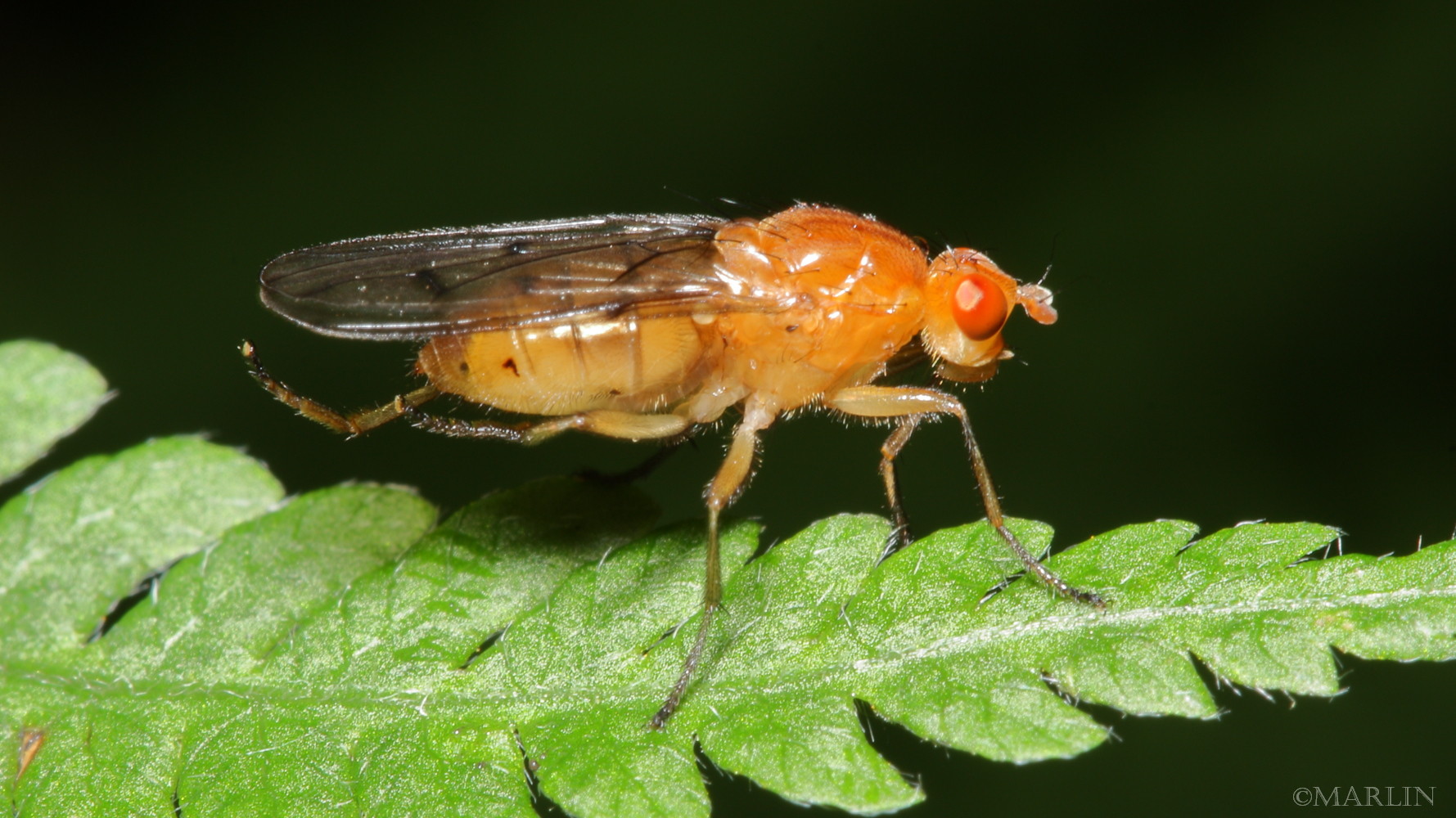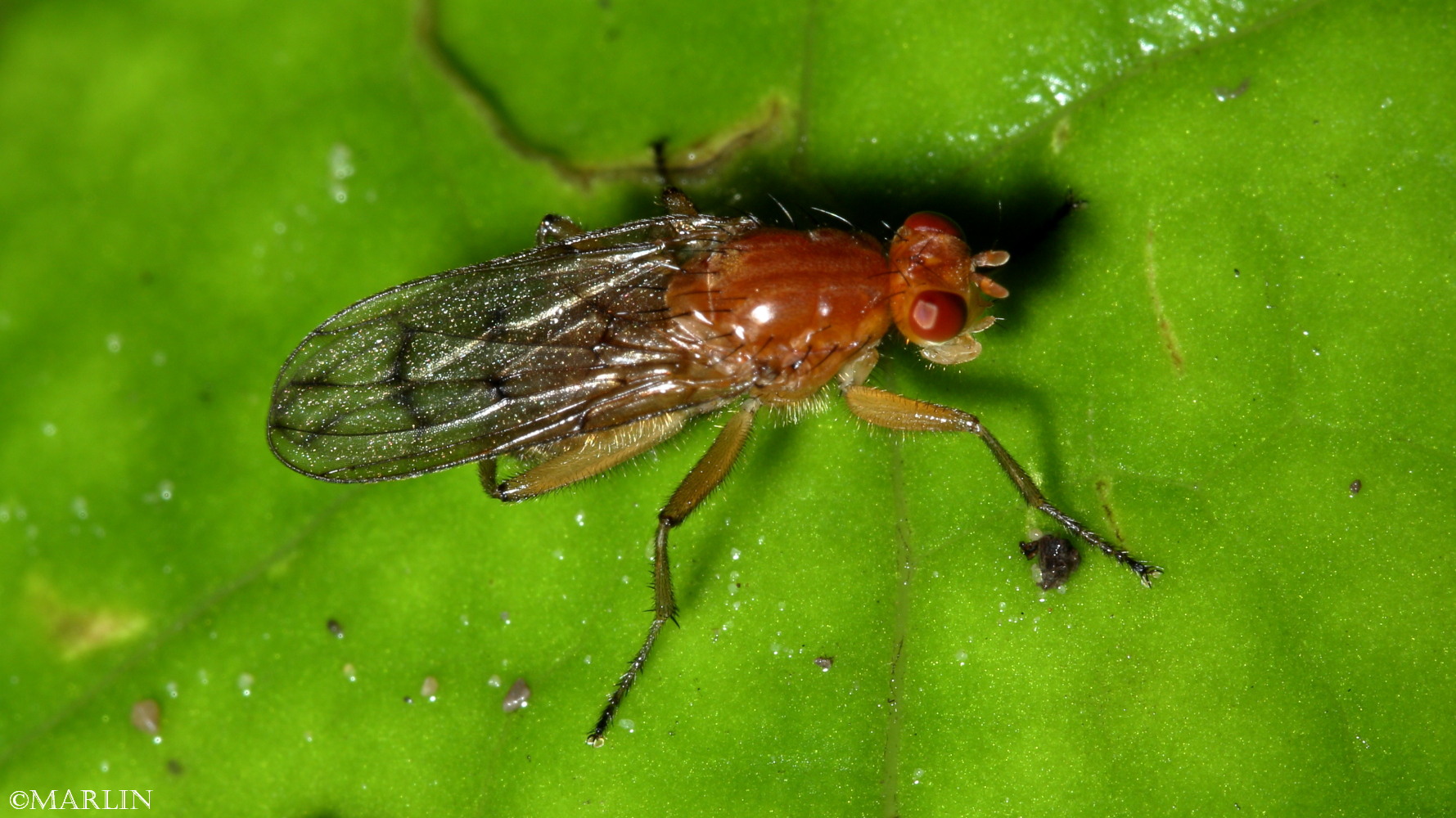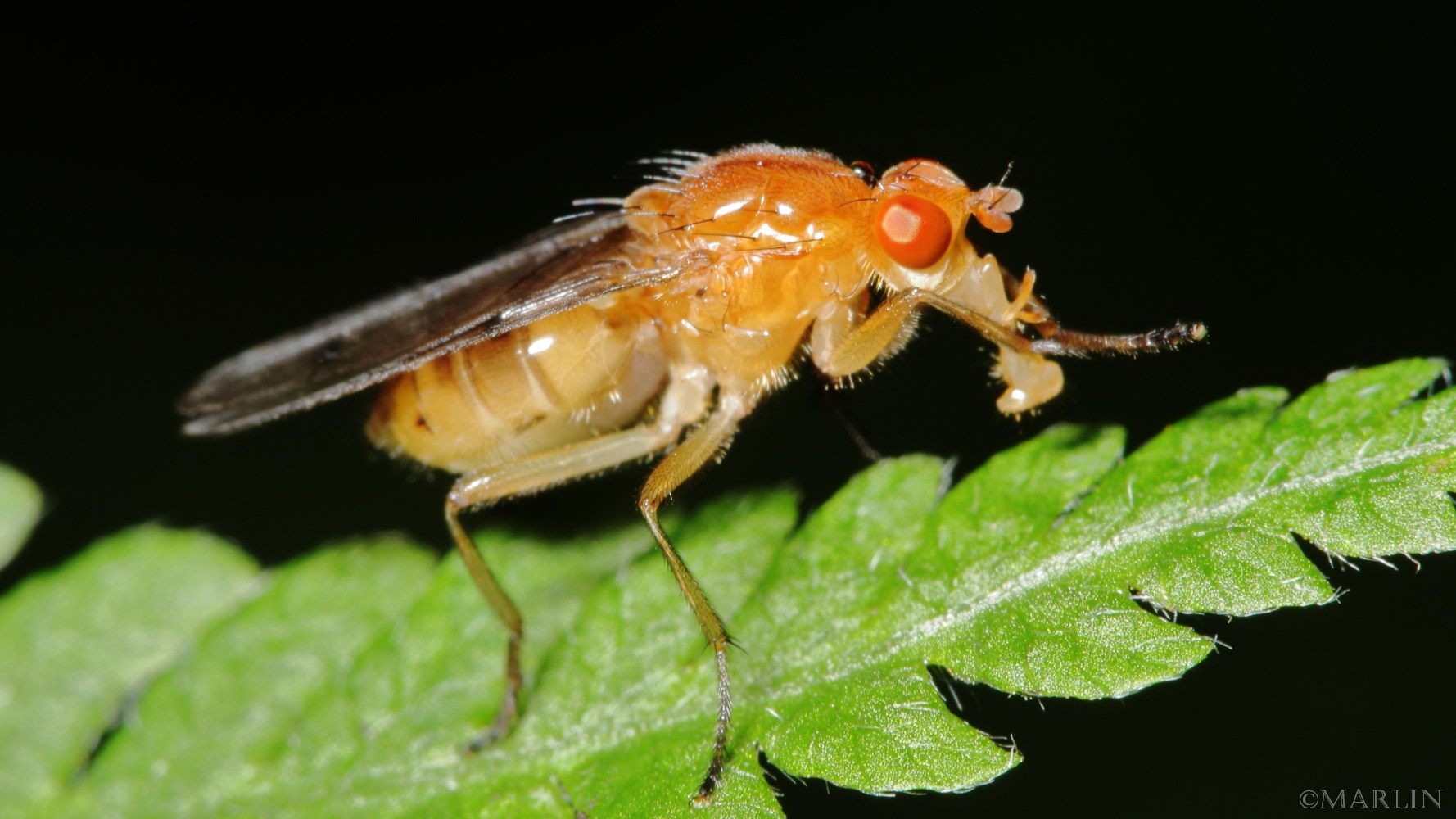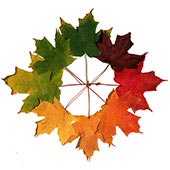Dryomyzid Fly – Dryomyza species
Live adult Dryomyzid flies photographed in the wild at Warrenville, Illinois, USA.
I love the wild, red eyes on these guys. Nature sure has a colorful palette. I might be strange, but I can spend an hour or two mucking around in the understory of forests near my hometown in northern Illinois. Insects, however, are becoming more and more difficult to find, except for “keystone” species like the multi-colored Asian ladybug – those things are everywhere out-competing the native brands.
Dryomyzidae is a small family of flies ranging from 4-18mm long, with prominent bristles, and yellow to brown coloring. Larvae feed on decaying organic matter; carrion, dung, and fungi.
There are approximately 22 species in 6 genera (with two additional genera known only as fossils). Dryomyzid flies are found principally in the Holarctic though some are found in the Southern Hemisphere. Very little is known of the habits of the adults or immatures but adults are found in moist, shady habits among low-growing vegetation.
Dryomyzidae larvae are saprophagous, developing in decaying organic materials like carrion, dung, and fungi. They play a crucial role in nutrient cycling by decomposing these substrates.
More Info
-
Smithsonian Institution. (n.d.). World Catalog and Conspectus on the Family Dryomyzidae (Diptera: Schizophora).EDVIS. (2006). Dryomyzidae.
-
NatureSpot. (n.d.). Dryomyzidae.
-
Journal of Natural History. (1999). The ecological roles of Dryomyzidae in decomposition.
-
Wikipedia Contributors. (2025, April 20). Dryomyzidae. In Wikipedia, The Free Encyclopedia.
Flies Main | Flies Index | Tachinidae | Syrphidae | Bee Flies | Blow Flies | Flesh Flies



